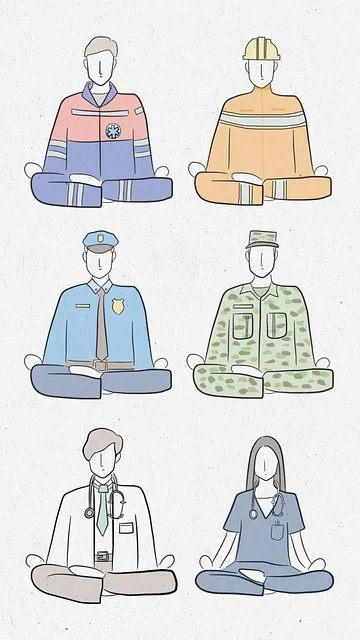In the digital era, the demand for accessible mental wellness solutions is higher than ever, with remote work and global challenges prompting many to seek help from home. Mental wellness apps offer on-demand resources, personalized guidance, and tools for managing stress, anxiety, and trauma, breaking down barriers to care. Kaiser Permanente's Norcal Wheat Ridge initiative combines digital tools with cultural competency training, offering a holistic approach to mental wellness through its app, featuring mood trackers, meditation sessions, CBT techniques, online communities, scheduled self-care reminders, and structured programs like Social Skills Training and Inner Strength Development.
Mental wellness apps have become essential tools in modern society, offering accessible support for individuals seeking improved mental health. With increasing demand and awareness of mental health issues, this article explores the development of such apps, focusing on their impact and key features. We delve into the specific approach taken by Kaiser Permanente’s Norcal Wheat Ridge program, highlighting its effectiveness as a case study in the field of digital mental wellness solutions.
- Understanding the Need for Mental Wellness Apps
- Key Features and Functionality in App Development
- Kaiser Permanente's Approach: Norcal Wheat Ridge as a Case Study
Understanding the Need for Mental Wellness Apps

In today’s fast-paced digital age, the demand for accessible mental wellness solutions is more prominent than ever. This need is highlighted by organizations like Kaiser Permanente, which offers mental health phone numbers for Norcal and Wheat Ridge regions, demonstrating a growing recognition of the importance of mental health support. The rise in remote work, increased social isolation, and ongoing global challenges have pushed many individuals to seek help from the comfort of their homes.
Mental wellness apps cater to this demand by providing on-demand resources, personalized guidance, and tools for managing stress, anxiety, and even trauma. They offer a discrete and convenient way for users to take control of their mental health. Incorporating evidence-based practices such as Crisis Intervention Guidance and Mind Over Matter principles, these applications are becoming powerful allies in the journey towards better well-being. With Trauma Support Services readily available at users’ fingertips, apps like these play a significant role in breaking down barriers to accessing care.
Key Features and Functionality in App Development

When developing a mental wellness app, integrating key features designed to support users’ emotional well-being is paramount. Start with a user-friendly interface that encourages consistent engagement, offering personalized tracks and resources tailored to individual needs. Incorporate interactive tools like mood trackers, meditation sessions, and cognitive behavioral therapy (CBT) techniques to empower users in managing their mental health.
Focus on functionality that fosters social connection and support, such as online communities or chat groups where individuals can share experiences and learn from one another. Include features promoting self-care practices, like scheduled reminders for mindfulness exercises and healthy habits, drawing inspiration from the Mind Over Matter Principles. For those seeking a more structured approach, integrate programs dedicated to Social Skills Training and Inner Strength Development, ensuring comprehensive care accessible via the Kaiser Permanente mental health phone number Norcal Wheat Ridge.
Kaiser Permanente's Approach: Norcal Wheat Ridge as a Case Study

Kaiser Permanente, a renowned healthcare provider, has been at the forefront of leveraging technology to enhance mental wellness. The Norcal Wheat Ridge initiative serves as an excellent case study for their innovative approach. This program focuses on utilizing digital tools to support individuals’ mental health journeys while emphasizing cultural competency training for healthcare professionals. By integrating various features, such as risk assessment tools and inner strength development programs, the app caters to a diverse user base.
The success of Norcal Wheat Ridge lies in its holistic strategy, addressing not just symptoms but also promoting overall well-being. This case study highlights Kaiser Permanente’s commitment to staying ahead in the digital healthcare space, ensuring that mental health services are accessible and tailored to individual needs. The app’s development demonstrates a strategic shift towards technology-driven solutions, reflecting the growing recognition of their impact on mental wellness.
Mental wellness apps have become essential tools in addressing the growing need for accessible and personalized support. As demonstrated by Kaiser Permanente’s successful Norcal Wheat Ridge initiative, integrating digital solutions into mental healthcare can significantly improve patient outcomes. By focusing on key features like customizable therapy plans, mindfulness exercises, and secure communication channels, these apps offer a discrete and convenient way to manage mental health. The Kaiser Permanente mental health phone number serves as a vital resource for those seeking immediate assistance, further emphasizing the critical role of comprehensive digital mental wellness solutions in today’s healthcare landscape.






